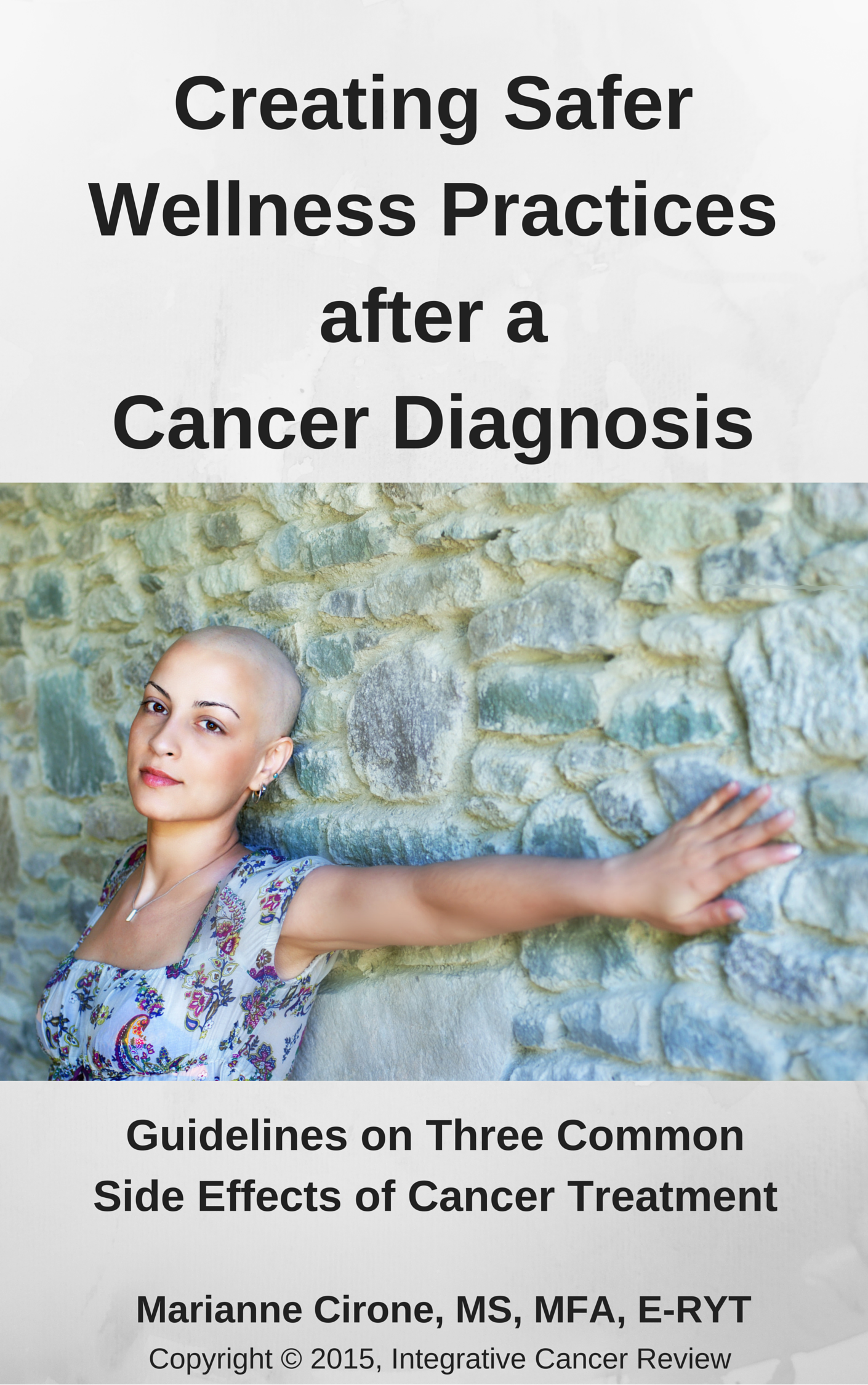Why Integrative Care for Cancer?
You have cancer.
In the United States alone, over a million people hear those words every year.
Over 14 million people living in the US today have been diagnosed with cancer.
The National Institutes of Health (NIH) put the costs of cancer in the hundreds of billions of dollars per year.
Yet, it’s not easy to measure all the effects of a cancer diagnosis, including:
The impact of the cancer treatments which bring their painful and disabling side effects.
The psycho-social effects of cancer– the depression, the anxiety, the economic and relationship issues.
The impact of each cancer diagnosis on spouses, parents, partners, children, siblings, extended family, friends and employers.
How can cancer be addressed in a safe, cost-effective way?
Cancer is a complex group of illnesses with costly and difficult treatments.
Increasingly, research supports the use of integrative and complementary care for people diagnosed with cancer. Studies confirm linkages between the use of various integrative modalities—with both subjective and objective assessments of well-being for both patients/survivors and caregivers/family members.
As clinical research provides valid support for the safety and effectiveness of integrative care protocols, these “evidence-based” findings will then become the gold standard needed to start including these treatment therapies into a coordinated health care plan or protocol.
Integrative Medicine is a consciously coordinated health care framework which blends conventional and complementary therapies. For cancer care, this is also called Integrative Oncology, Integrative Cancer Therapy or Integrative Cancer Care.
People affected by cancer often face a variety of conditions that can be both chronic and complex. The benefits of integrative and complementary therapies for cancer-related conditions—when used safely and effectively, may:
- Mitigate the side effects of cancer treatment
- Improve physical, mental and emotional functioning (for people with a cancer diagnosis as well as for caregivers)
- Alleviate the impact of underlying conditions and co-morbidities
- Lead to greater spiritual connection and finding of meaning in life
- Improve overall well-being and quality of life
- Provide economic savings
- Empower and support people facing cancer in ways that improve clinical outcomes
Who Supports Integrative Cancer Care?
Increasingly, the support for integrative cancer care is coming from diverse arenas of medical and
Hospitals, Medical Centers and Medical Schools
Top cancer care hospitals, including Memorial Sloan Kettering, the MD Anderson Cancer Center, the Dana-Farber Cancer Institute, the Mayo Clinic, Duke Medicine and UCLA’s Jonsson Comprehensive Cancer Center, now have integrative cancer therapy programs. As evidence-based support for integrative therapies increases, the leaders in clinical oncology will continue to add integrative cancer programs, grass roots interest by patients and practitioners will increase, and these therapies will become both more widely accepted and more utilized.
The MD Anderson Cancer Center’s Integrative Medicine Program focuses on the importance of using “evidence-based” therapies, stating:
“Our intention is to provide evidence-based information [on integrative therapies] to improve the lives of patients who choose to use these therapies under the direction of informed physicians.”
The Simms/Mann – UCLA Center for Integrative Oncology suggests the importance of the blended approach to cancer care:
“While the first step in managing cancer is getting the best cancer care with leading edge physicians and researchers, we believe that patients and families need and want more. The best medicine combines multiple modalities [italics added].”
Medical Professionals
Many leading medical professionals, including high profile physicians, nurses and other professionals, are now enthusiastically investigating the positive potential of integrative cancer care.
Randy Horowitz, MD, PhD, Medical Director of the Program in Integrative Medicine at the University of Arizona, College of Medicine, an internist and immunologist who did postdoctoral research training at the National Institutes of Health, promotes “mind-body” modalities in particular. He refers to the “art of integrative medicine” as intuitively matching patients with modalities that both “appeal to and work for each individual.”
Andrew Weil, MD, founder of the University of Arizona Integrative Medicine program, and Donald Abrams, MD, chief of Hematology and Oncology at San Francisco General Hospital and a cancer and integrative medicine specialist at the Osher Center for Integrative Medicine, wrote the new book Integrative Oncology, which analyzes and highlights the best practices for integrative and complementary cancer care. According to a review of this book by the ASCO Post (American Society for Clinical Oncology), widely considered the premier association representing oncology professionals:
“Integrative Oncology is an exciting new discipline that offers best-practice methods to prevent cancer and support those affected by it on all levels: body, mind, and spirit. This comprehensive book provides meticulous, well-written chapters on proven and yet-to-be-proven methods for enhancing cancer care with integrative oncology.”
The Block Center for integrative cancer treatment in Skokie, Illinois is an example of an independent practice that includes board-certified oncologists, internists, oncology nurses, physician assistants, psychologists, registered dieticians, physical therapists, social workers, complementary care specialists, researchers and patient care coordinators on the care team.
Complementary Health and Wellness Professionals
Increasingly, complementary health and wellness professionals are providing services that are specifically geared toward the complexities of cancer care. Specific training programs such as oncology-focused fitness, massage, yoga, esthetics, energy work and other complementary care modalities support the safe, effective and accessible provision of care.
People Affected By Cancer
According to the 2007 National Health Interview Survey (NHIS), an annual in-person survey of Americans regarding their health- and illness-related experiences, over 38% of Americans use “complementary or alternative medicine.” This percentage is likely much higher today, especially for people diagnosed with cancer, due to increasing trends toward integrative care and the seriousness of cancer and its treatment side effects that would lead people to seek additional options.
The Government
The Government may be getting on board the Integrative Medicine bandwagon slowly, but they are making strides nonetheless. The National Center for Complementary and Integrative Health, a division of the National Institutes of Health (NIH), received $125 million in 2015 (from $2 million for 1992, its year of inception) to:
“Define, through rigorous scientific investigation, the usefulness and safety of complementary and integrative health interventions and their roles in improving health and health care.”
The NCCIH is one of 27 of the NIH agencies, whose total budget for all of those divisions exceeds $30 billion annually.
It’s interesting to note that the NCCIH received an equal share of the pie, their annual budget would be over a billion dollars per year. They currently receive about 10% of that, or .4% of the total NIH budget.
Health Insurance Companies and HMOs
While a recent study showed that 14 out of 18 major insurers (including Aetna, Medicare, Prudential and Kaiser Permanente) provided some type of coverage for at least 11 of 34 complementary therapies, most coverage involves a discounted fee for service arrangement or a limited number of sessions. So for now, the lion’s share of complementary cancer care therapies will remain out of pocket expenses, or will be subsidized by grants or donations secured by cancer support organizations.
If coverage by insurance companies is to increase, it is likely that the requirements for providers of these therapies will become more rigorous, requiring licensure, documentation or other requisites.
What are Other Benefits of Integrative Cancer Care?
Integrative cancer therapies can provide effective support to healing, including helping to make the client feel better in the short and long term.
Integrative care can also serve as a catalyst to improving treatment compliance for conventional cancer treatments. According to research presented at the Oncology Nursing Society 37th Annual Congress in 2012, an integrative cancer care navigation program can significantly improve treatment compliance and wellness practices in underserved populations.
As our population ages and cancer rates increase, integrative and complementary care will continue to increase in importance for reasons of both economic and health benefits.
What are the Next Steps for Integrative Cancer Care?
As more research shows the benefits of integrative therapies, health care professionals recommend these therapies, and people affected by cancer communicate their satisfaction with integrative modalities, the demand for integrative cancer therapies and qualified practitioners will continue to increase.
Whether or not insurers or regulatory agencies become involved, additional cancer-focused training will be important for many individuals in complementary care fields in order to assure the utmost safety and professionalism in dealing with the condition of cancer and the side effects of treatment.
Increasing communication about industry best practices in for wellness professionals dealing with cancer and the growth of cancer-focused training across modalities will be critical for the success of integrative cancer care.











